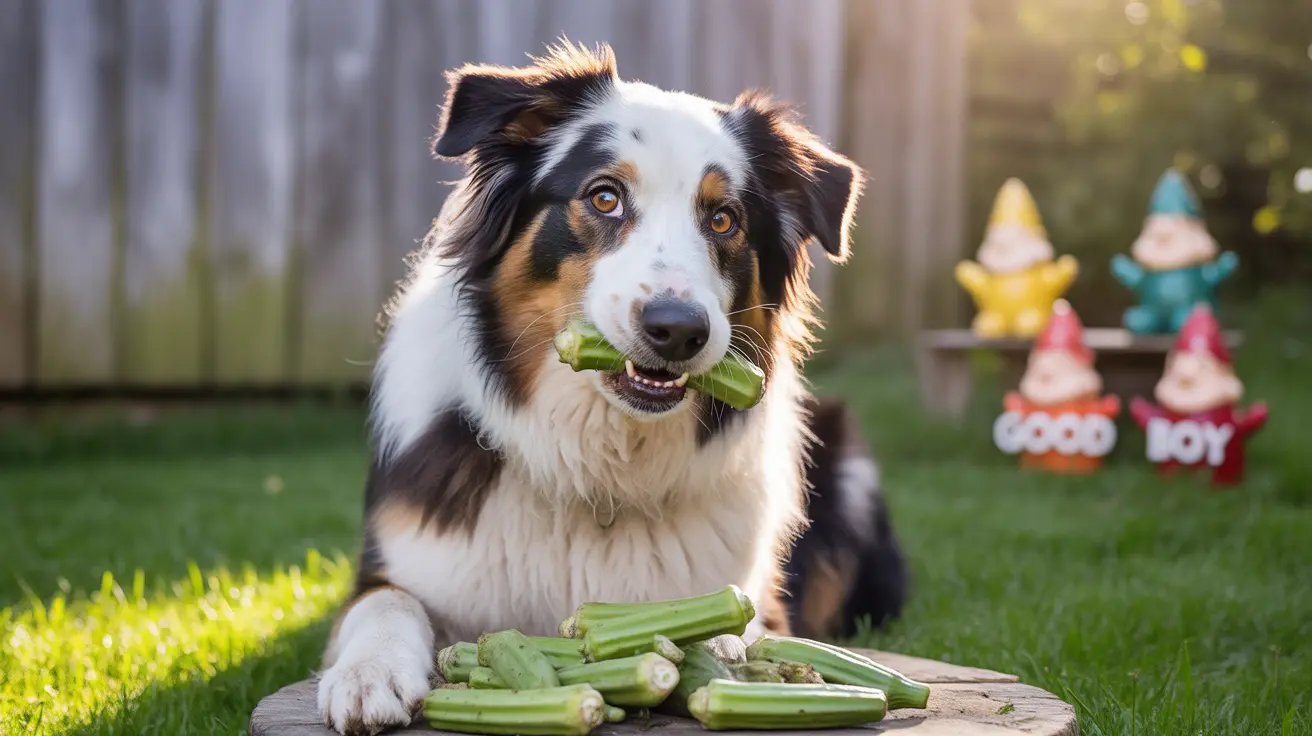As pet owners increasingly explore healthy food options for their furry friends, the question "can dogs eat okra?" has become more common. This nutrient-rich vegetable can indeed be a safe and healthy addition to your dog's diet when prepared and served appropriately.
In this comprehensive guide, we'll explore everything you need to know about feeding okra to your canine companion, including its nutritional benefits, potential risks, and proper serving methods.
The Nutritional Benefits of Okra for Dogs
Okra packs an impressive nutritional punch that can complement your dog's regular diet. This low-calorie vegetable contains just 33 calories per 100 grams while offering numerous essential nutrients:
- Dietary fiber (3.2g per 100g) for digestive health
- Vitamin C (23mg per 100g) for immune support
- Vitamin K for bone health and blood clotting
- Potassium (299mg per 100g) for heart and muscle function
- Antioxidants for cellular health and inflammation reduction
Safe Preparation Methods for Dogs
When serving okra to your dog, proper preparation is crucial for both safety and digestive comfort:
Raw Okra
- Wash thoroughly to remove pesticides
- Cut into small, manageable pieces
- Serve in moderation
Cooked Okra
- Steam or boil without seasonings
- Avoid frying or adding oils
- Let cool before serving
- Skip salt, spices, and other additives
Portion Size and Feeding Guidelines
Following proper portion control is essential when introducing okra to your dog's diet:
- Small dogs (under 20 lbs): 1-2 small pieces
- Medium dogs (20-50 lbs): 2-3 medium pieces
- Large dogs (over 50 lbs): 3-4 pieces
Always start with smaller amounts and observe your dog's reaction before increasing portions.
Potential Risks and Precautions
While okra is generally safe for dogs, there are some important considerations:
- High fiber content can cause digestive upset if overfed
- Calcium oxalate content may be problematic for dogs prone to kidney stones
- Choking hazards if not properly cut
- Possible allergic reactions in sensitive dogs
When to Avoid Feeding Okra
Some dogs should not consume okra, including:
- Those with a history of kidney or bladder stones
- Dogs with known vegetable allergies
- Pets with sensitive digestive systems
- Dogs on specialized diets for medical conditions
Frequently Asked Questions
Can dogs safely eat okra, and how should it be prepared?
Yes, dogs can safely eat okra when properly prepared. Serve it raw, steamed, or boiled without any seasonings, oils, or additives. Always cut it into small, manageable pieces to prevent choking.
What are the health benefits of feeding okra to my dog?
Okra provides fiber for digestive health, vitamins C and K for immune support and bone health, and antioxidants for cellular protection. It's also low in calories and can be beneficial for overall health.
How much okra can I give my dog without causing digestive problems?
Start with 1-2 small pieces for small dogs, 2-3 for medium dogs, and 3-4 for large dogs. Monitor their reaction and adjust portions accordingly. Okra should make up less than 10% of their daily caloric intake.
Are there any risks or allergies associated with dogs eating okra?
Yes, potential risks include digestive upset from overfeeding, choking hazards, and possible allergic reactions. Some dogs may also be sensitive to the calcium oxalate content in okra.
Can okra help with my dog's weight management or diabetes?
Due to its low calorie and fiber content, okra can be a healthy treat option for overweight dogs or those with diabetes. However, always consult with your veterinarian before making dietary changes for these conditions.
Remember to always consult with your veterinarian before introducing new foods to your dog's diet, especially if they have existing health conditions or dietary restrictions.






